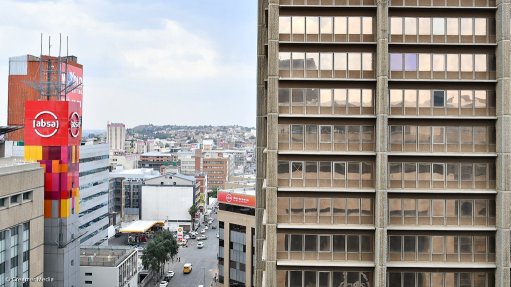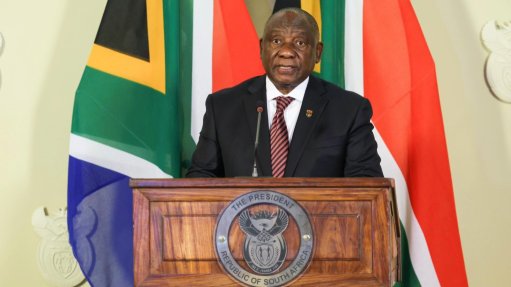Cock-a-doodle-doo
Since the beginning of the seventh administration, South Africa [has] embarked on a process to stabilize and enhance mutually beneficial trade and investment relations with the US.”
Have you spotted the American spelling? There is more: aluminum (aluminium for you and me), finalized, and industrialization. But what does spelling have to do with the price of eggs, you might ask.
On the topic of gallus domesticus – yes, I chickened out of calling it by its traditional name, ‘chicken’ – since ‘administrations’ are being cited, the second administration imposed anti-dumping duties in 1999, following an investigation by the International Trade Administration Commission of South Africa’s predecessor, the Board on Tariffs and Trade, against US chicken imports. Subsequent administrations have retained these duties.
The anti-dumping duties are no spring chickens, then. A year later, the US Senate signed the African Growth and Opportunity Act into law. South Africa currently imposes seven anti-dumping duties at a rate of 940c/kg on US chicken, recently extended to 2029. The classification of chicken includes the whole bird, halves, leg quarters, wings, breasts, thighs, drumsticks, and other parts.
Over and above the seven US chicken anti-dumping duties, South Africa – and by implication the Southern African Customs Union – also imposes a 40% ad valorem anti-dumping duty on disodium carbonate.
Before crossing the road, you might question just how popular the chicken anti- dumping duties are. You might then want to read the Cato Institute’s article, ‘Anti-dumping fowls out: US–South Africa chicken dispute highlights the need for global reform’, published on October 19, 2015, under the kicker ‘South Africa’s Blatant Trick’. The article reads: “The duties South Africa has imposed on imports of chicken from the US for the last 15 years are particularly egregious. "The case offers a good example for how authorities can abuse the complexities of anti-dumping law to justify duties that have no meaningful relationship to actual market conditions.”
Based in Washington DC, in the US, the Cato Institute describes itself as “an assiduously nonpartisan and independent public policy research organization – or think tank – that creates a presence for and promotes libertarian ideas in policy debates”.
What’s the relevance, you might ask. Well, consider the big picture. That might be a tad unfair. Let me ask you differently: Who are South Africa’s ‘biggest trading partners’? The first is the EU, to which you could add the UK, as it remains intertwined with the former, regardless of Brexit. The second is China, with the US in third place.
So, for the big picture, South Africa has the Trade, Development and Cooperation Agreement Free Trade Agreement plus (FTA+) with the EU and with the UK, neither of which is particularly favourable to South Africa by any stretch of the imagination. Disappointingly, instead of renegotiating a better trade deal with the UK after Brexit, as other trading-partner countries did, South Africa decided to merely roll it over. Along with Brazil, Russia, India, and China South Africa is the briquette in the BRICs group – an economic and political forum. As for the US, it extends non-reciprocal trade preferences to South Africa, arguably without “mutually beneficial trade”.
So it was no surprise that the US imposed 30% ad valorem tariffs on South African imports on August 7. The South African government responded through the Department of International Relations and Cooperation, and the Department of Trade, Industry and Competition, which issued a joint media statement titled ‘South Africa’s response measures to the US tariffs’. Not exactly playing chicken.
As of August 8, that was still the last word from the South African government.
So, what is the plan? The statement identifies four ‘response measures’, which are: continuing to negotiate with the US (never mind that South Africa doesn’t currently have an ambassador in the US); implementing an economic response package; introducing a block exemption for exporters; and diversifying markets, which will be challenging, given that the US is restricting or closing its market to a range of countries.
What is the immediate fix? But is that even possible? No rooster is yet crowing.
Article Enquiry
Email Article
Save Article
Feedback
To advertise email advertising@creamermedia.co.za or click here
Announcements
What's On
Subscribe to improve your user experience...
Option 1 (equivalent of R125 a month):
Receive a weekly copy of Creamer Media's Engineering News & Mining Weekly magazine
(print copy for those in South Africa and e-magazine for those outside of South Africa)
Receive daily email newsletters
Access to full search results
Access archive of magazine back copies
Access to Projects in Progress
Access to ONE Research Report of your choice in PDF format
Option 2 (equivalent of R375 a month):
All benefits from Option 1
PLUS
Access to Creamer Media's Research Channel Africa for ALL Research Reports, in PDF format, on various industrial and mining sectors
including Electricity; Water; Energy Transition; Hydrogen; Roads, Rail and Ports; Coal; Gold; Platinum; Battery Metals; etc.
Already a subscriber?
Forgotten your password?
Receive weekly copy of Creamer Media's Engineering News & Mining Weekly magazine (print copy for those in South Africa and e-magazine for those outside of South Africa)
➕
Recieve daily email newsletters
➕
Access to full search results
➕
Access archive of magazine back copies
➕
Access to Projects in Progress
➕
Access to ONE Research Report of your choice in PDF format
RESEARCH CHANNEL AFRICA
R4500 (equivalent of R375 a month)
SUBSCRIBEAll benefits from Option 1
➕
Access to Creamer Media's Research Channel Africa for ALL Research Reports on various industrial and mining sectors, in PDF format, including on:
Electricity
➕
Water
➕
Energy Transition
➕
Hydrogen
➕
Roads, Rail and Ports
➕
Coal
➕
Gold
➕
Platinum
➕
Battery Metals
➕
etc.
Receive all benefits from Option 1 or Option 2 delivered to numerous people at your company
➕
Multiple User names and Passwords for simultaneous log-ins
➕
Intranet integration access to all in your organisation


















